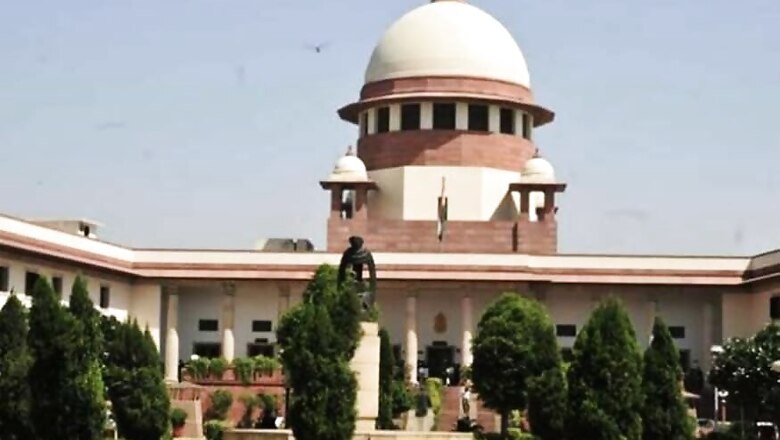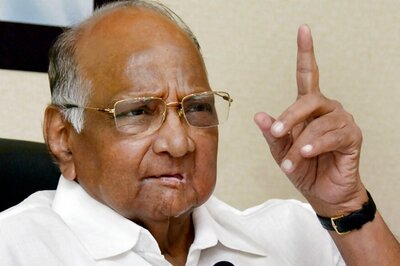
views
The Supreme Court on Wednesday issued a notice to the central government on five fresh pleas challenging the constitutional validity of the Citizenship (Amendment) Act, 2019 on various grounds including that the "specific exclusion" of Muslims was against the right to equality and secularism under the Constitution.
The CAA, which was notified on January 10, grants Indian citizenship to non-Muslim minorities -- Hindu, Sikh, Buddhist, Jain, Parsi and Christian -- who migrated to India from Afghanistan, Pakistan and Bangladesh till December 31, 2014, following persecution over their faith.
The top court on December 18 last year had decided to examine the constitutional validity of the CAA while refusing to stay its operation.
A bench comprising Chief Justice SA Bobde and Justices AS Bopanna and Hrishiksh Roy, in the proceedings held through video-conferencing, issued the notice on the pleas filed by Tamil Nadu Thoweed Jamath, Shalim, All Assam Law Students Union, Muslim Students Federation (Assam) and Sachin Yadav and ordered their tagging with the earlier batch of PILs filed on the issue.
Indian Union Muslim League (IUML) is the lead petitioner in the case.
Tamil Nadu Thoweed Jamath, in its PIL, said it was raising a "seminal important questions related to the promulgation of CAA, wherein first time religion is introduced as a reference point/condition for acquisition of Indian Citizenship for illegal/undocumented migrants from Afghanistan, Bangladesh and Pakistan".
Citizenship is being extended to certain a class of migrants belonging to religion of Hindus, Sikhs, Buddhists, Jains, Parsis and Christians and such classification violates Article 14 (right to equality) and 21 (right to equality) of the Constitution.
"Moreover, the classification based on the religious identity of the individual offends the fundamental principle of 'Secularism', which is enshrined as basic structure of the Constitution," it said, adding that the benefit was specifically denied to "Muslims by specific exclusion".
Other fresh PILs also raised similar objections to the CAA.
Prior to this, the Centre on March 17 had filed its response to the over 100 PILs against the CAA and had asserted that the law does not violate any fundamental right or affect the legal, democratic and secular rights of any Indian citizens.
The government had said the CAA does not confer any arbitrary and unguided powers on the executive as the citizenship to the persecuted minorities of Pakistan, Afghanistan and Bangladesh would be granted in a manner as specified under the law governing grant of citizenship.
"CAA does not impinge upon any existing right that may have existed prior to the enactment of the amendment and further, in no manner whatsoever, seeks to affect the legal, democratic or secular rights of any of the Indian citizens. The existing regime for obtaining citizenship of India by foreigners of any country is untouched by the CAA and remains the same," it had said.
President Ram Nath Kovind had given his assent to the Citizenship (Amendment) Bill, 2019 on December 12, turning it into an Act.
Several petitions have been filed challenging the constitutional validity of the CAA. Among those who have filed pleas are IUML, Congress leader Jairam Ramesh, RJD leader Manoj Jha, Trinamool Congress MP Mahua Moitra.
The IUML said in its plea that the CAA violates the fundamental Right to Equality and intends to grant citizenship to a section of illegal immigrants by making an exclusion on the basis of religion.



















Comments
0 comment